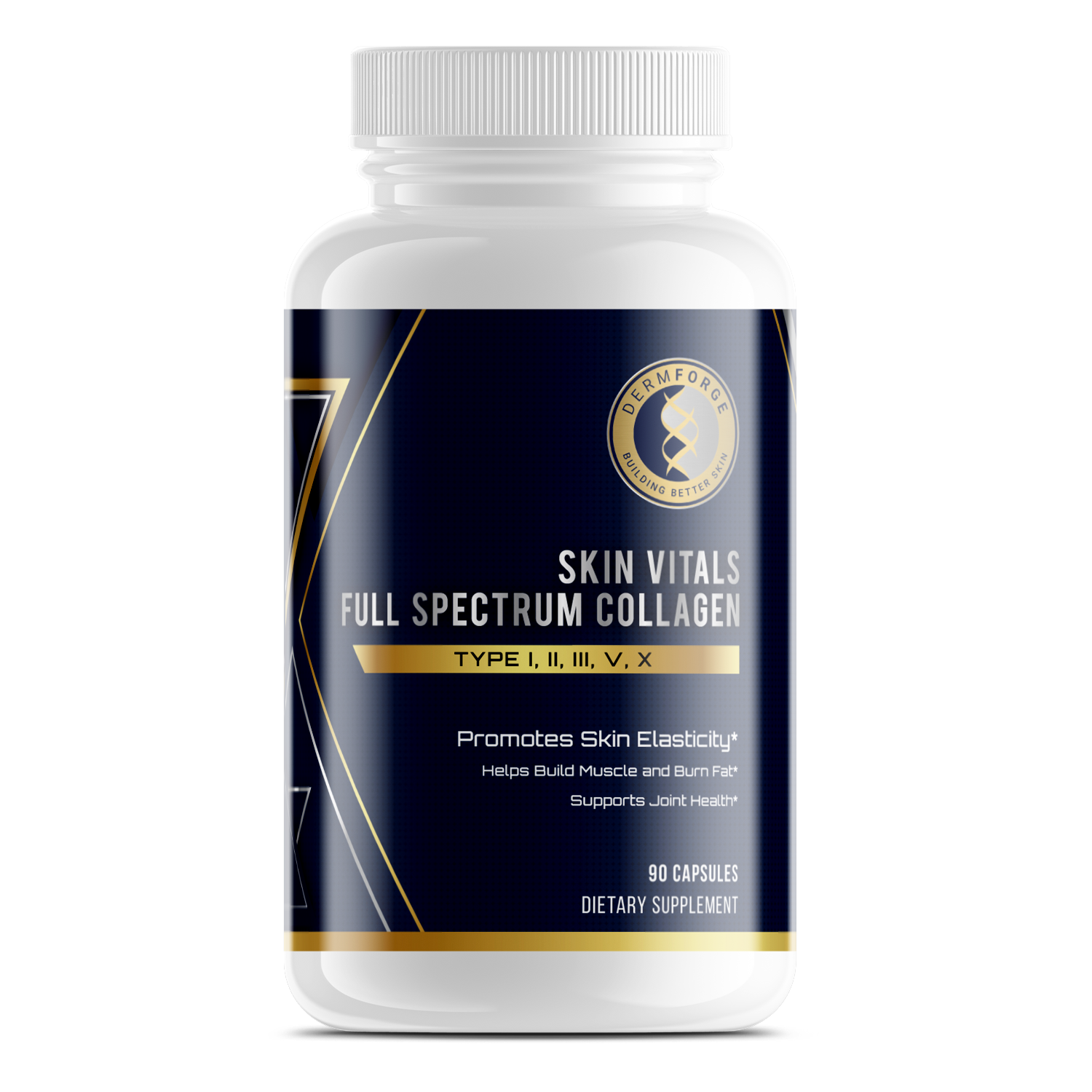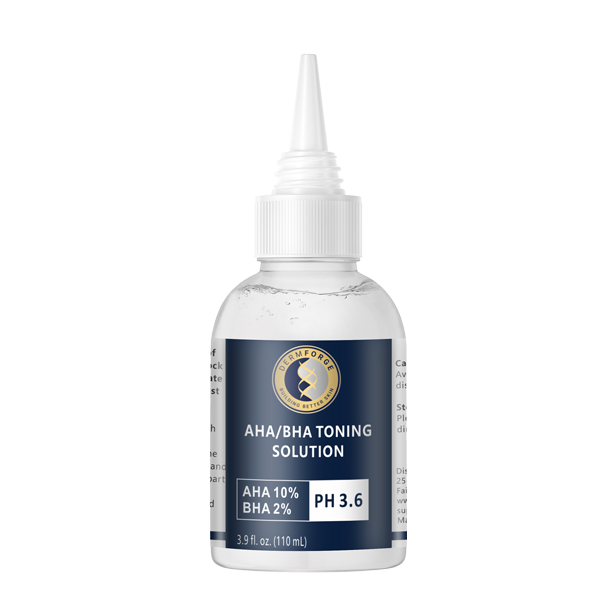Vitamin C remains one of the most widely used ingredients in skincare for a reason. The benefits of vitamin C for the skin go beyond brightness and tone. It supports firmness, smoothness, and daily defense against environmental stress. Therefore, many professionals recommend it as a regular part of your routine.
Your skin faces constant exposure to sunlight, pollution, and aging. These factors lead to dullness, dark spots, and a loss of structure. However, Vitamin C helps counteract these effects through its antioxidant properties. It supports your skin’s natural repair process while encouraging a clearer, more even appearance.
Additionally, Vitamin C works well with other products. You can pair it with sunscreen, moisturizers, and gentle exfoliants to strengthen your routine. Therefore, it’s flexible enough to support many skin types and conditions. With consistent use, many people see noticeable improvements in tone and texture.
Selecting the right formula depends on your skin’s needs. Some products work better for dry or sensitive skin, while others suit oily or aging skin. Additionally, how you layer Vitamin C with other ingredients can improve comfort and results. A thoughtful approach leads to better outcomes over time.
Whether you are starting a new routine or refining an existing one, Vitamin C remains a smart addition. Therefore, learning how it works and how to use it helps you get more from every drop. With patience and consistency, your skin can look and feel healthier each day.
How Vitamin C Works on a Cellular Level
Vitamin C plays an important role at the cellular level. It acts as an antioxidant and helps protect your skin from oxidative stress. This stress comes from pollution, sunlight, and natural aging. These factors cause free radicals, which damage skin cells and speed up aging.
Free radicals are unstable molecules that harm proteins and lipids in your skin. However, Vitamin C helps neutralize these molecules before damage spreads. Therefore, using Vitamin C helps protect your skin from early wrinkles and visible dullness. It works best when applied regularly through serums or creams.
Additionally, Vitamin C supports the enzymes involved in collagen production. Collagen helps maintain firmness, texture, and skin strength. As collagen decreases with age, your skin may look thinner or lose elasticity. Therefore, boosting collagen activity helps improve skin structure and reduce fine lines.
At a cellular level, Vitamin C also assists with wound healing. It promotes healthy tissue repair and reduces the appearance of spots over time. Therefore, many people notice brighter and stronger skin with continued use. These are key benefits of Vitamin C for the skin that go beyond surface results.
However, results depend on how Vitamin C is stored and applied. Choose stable formulas that match your skin type and apply consistently. Additionally, layering it with sunscreen can improve daytime protection. This antioxidant works quietly behind the scenes to help your skin look and function better.
Brightening and Evening Skin Tone
Vitamin C is widely known for brightening skin and improving overall tone. It targets uneven areas without bleaching or stripping your skin. Hyperpigmentation happens when cells produce too much melanin. This leads to dark spots, sun damage, or discoloration that can build up over time.
However, Vitamin C helps slow excess melanin production. Therefore, it reduces the appearance of age spots and post-acne marks. It works gradually to create a more balanced tone. Additionally, consistent use can fade dull patches and improve light reflection on your skin’s surface.
Your skin looks more vibrant when tone is even and texture is smooth. Vitamin C supports this process by encouraging a brighter and fresher appearance. Therefore, it becomes an important part of any routine focused on clarity and radiance. It also helps prevent future discoloration by calming inflammation and supporting cell turnover.
Additionally, Vitamin C works well with other skin-brightening ingredients. You can pair it with niacinamide or exfoliants for more noticeable results. However, avoid combining it with strong acids unless your skin tolerates both. Stick to products with stable forms of Vitamin C for best performance.
One of the main benefits of Vitamin C for the skin is its ability to create a healthy, even glow. Therefore, it’s a smart choice for those dealing with dullness or patchy tone. With daily use, many people see brighter, more balanced skin over time.
Stimulating Collagen for Firmer, Smoother Skin
Vitamin C plays a key role in collagen production. Your body uses it to support enzymes that help build and stabilize collagen fibers. Without enough collagen, your skin may lose firmness, leading to lines, sagging, or changes in texture. Therefore, adding Vitamin C can support stronger, smoother skin.
As you age, your body makes less collagen naturally. However, Vitamin C can help slow that decline by boosting your skin's repair process. Additionally, it helps maintain the skin’s structure by supporting healthy cell activity. You may notice firmer skin and fewer visible lines over time.
Collagen also keeps your skin resistant to everyday wear. Vitamin C helps maintain that resilience by reinforcing the skin’s inner framework. Therefore, it becomes an important part of any routine aimed at preserving youthful texture. The results can appear gradually, especially with consistent application.
Additionally, pairing Vitamin C with other supportive ingredients can improve your routine. Use hydrating serums or sunscreens that protect new collagen from damage. However, avoid layering it with strong exfoliants unless your skin can tolerate it. Consistency matters more than strength when it comes to collagen support.
One of the lasting benefits of Vitamin C for the skin is its impact on firmness and volume. Therefore, it remains a key ingredient for anyone focused on aging concerns. Whether you’re aiming to smooth lines or maintain structure, this vitamin supports long-term skin health.
Protection Against Environmental Damage
Your skin faces stress every day from sunlight, pollution, and harsh environments. These elements trigger oxidative stress, which weakens your skin’s surface. However, Vitamin C helps shield your skin by neutralizing harmful free radicals before they cause lasting damage. This protection builds over time with regular use.
Additionally, Vitamin C reduces the impact of daily exposure to smoke, dust, and other environmental toxins. These particles can break down collagen and disrupt your skin barrier. Therefore, applying Vitamin C in the morning adds an extra layer of defense before leaving the house.
UV exposure also accelerates aging, even when you wear sunscreen. However, Vitamin C works well with SPF to strengthen your daily protection. It targets the invisible stress that contributes to dullness, dark spots, and uneven texture. Therefore, your skin stays stronger and more resilient throughout the day.
Pollution can also clog pores and lead to inflammation. Vitamin C helps keep your skin balanced and calmer in high-exposure environments. Additionally, it supports repair overnight by boosting antioxidant levels already present in your cells. The results may not be instant, but they build gradually with consistent care.
One of the overlooked benefits of Vitamin C for the skin is its ability to fight back quietly throughout the day. Therefore, adding it to your routine can protect your skin while improving how it looks and feels. The best defense often starts with the right daily product.
Compatibility with Other Skincare Ingredients
Vitamin C can work well with many other skincare ingredients when paired correctly. This makes it easy to fit into your routine. However, it helps to understand how certain combinations affect your results and comfort. The right mix can increase both absorption and effectiveness.
Hyaluronic acid is one of the best companions for Vitamin C. It draws in moisture and supports hydration throughout the day. Therefore, pairing these two helps reduce dryness and improve skin texture. Apply Vitamin C first, then follow with hyaluronic acid for better layering.
Additionally, Vitamin C boosts the protective effects of sunscreen. Use it in the morning before applying SPF to defend against sun damage. While sunscreen blocks UV rays, Vitamin C helps fight the oxidative stress they leave behind. Therefore, this combination helps maintain a brighter, smoother appearance.
Niacinamide is another common ingredient found in many skincare routines. Some believe it conflicts with Vitamin C, but that’s outdated information. These ingredients can work together without problems when used in stable formulas. Therefore, you can include both for added benefits like reduced redness and smoother tone.
The benefits of Vitamin C for the skin increase when paired thoughtfully. Each combination brings something different to your routine. Therefore, consider your goals and skin type when layering ingredients. With the right products, your skin can stay protected, hydrated, and more even in tone.
Choosing the Right Vitamin C Product for Your Skin Type
Finding the right Vitamin C product depends on your skin type, comfort level, and how your skin reacts to active ingredients. Some formulas are stronger than others and may not work well for sensitive or dry skin. Therefore, starting with a lower concentration can help reduce irritation.
If your skin is oily or acne-prone, consider a lightweight serum with ascorbic acid between 10 and 15 percent. This form absorbs quickly and works well on congested skin. Additionally, look for formulas with water-based textures to avoid clogging pores. These products often pair well with exfoliants or lightweight moisturizers.
For dry or sensitive skin, choose a gentler form like magnesium ascorbyl phosphate or sodium ascorbyl phosphate. These are less irritating and more stable in lower concentrations. Therefore, they are easier to tolerate when your barrier feels tight or reactive. Additionally, creams or emulsions may feel more comfortable than serums.
Mature skin may respond better to mid-strength Vitamin C formulas with added hydrating or firming ingredients. Therefore, look for products that also contain peptides or hyaluronic acid. These support elasticity while minimizing dryness. Use in the morning for added antioxidant protection throughout the day.
Selecting the right product makes it easier to see the benefits of Vitamin C for the skin without discomfort. Additionally, stable packaging like dark glass bottles helps preserve potency. Therefore, always read the label before adding a new product to your routine.
Conclusion
Vitamin C remains one of the most effective ingredients for maintaining healthy, resilient skin. It supports your skin from many angles. Therefore, it makes sense to include it in your routine with intention and consistency. The right product can lead to visible improvements over time.
Additionally, Vitamin C helps fight environmental stress and early signs of aging. It promotes collagen production and keeps your skin looking brighter. However, results depend on proper use, product stability, and compatibility with your skin type. Starting slow and building gradually often leads to better comfort and progress.
The benefits of vitamin C for the skin include more than surface-level changes. It also strengthens how your skin functions beneath the surface. Therefore, it supports lasting health as well as appearance. When used with other supportive ingredients, its impact can be even more noticeable.
Consider your goals before selecting a product. Then, match the concentration and formula to your skin’s needs. Additionally, pair Vitamin C with SPF in the morning to extend protection. These steps help you get the most from your investment without causing unwanted reactions.
Whether you’re managing dark spots, dryness, or uneven tone, Vitamin C offers a practical solution. Therefore, staying informed helps you make smarter skincare decisions. A balanced routine built around ingredients that work together will give you better long-term results.








